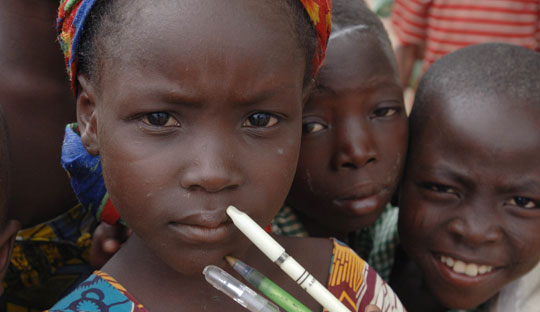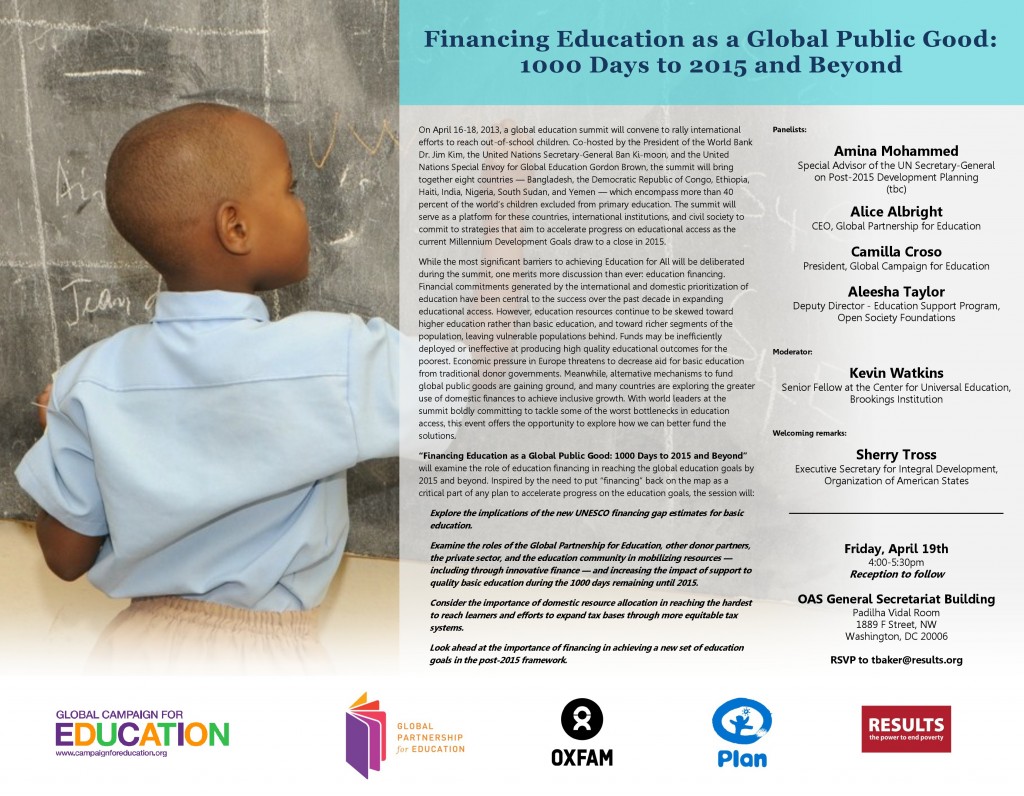
This week, an unprecedented gathering of world leaders in Washington DC is seeking to urgently accelerate progress on achieving education for all. 61 million children of primary school age are still out of school around the world, and with less than 1,000 days remaining to the deadline for the Millennium Development Goals (MDGs), urgent action is needed right now to ensure every child goes to school by 2015.
Heads of global development agencies and ministers from eight developing countries that account for a large proportion of the world’s out-of-school children are meeting to discuss urgent action to remove the barriers to achieving the Millennium Development Goal (MDG2) of universal primary education by 2015 and to close the gap between rich and poor in learning access and outcomes.

The “Learning for All Ministerial” meetings are taking place ahead of the World Bank Spring Meetings and are co-hosted by Jim Kim, the Bank’s President, Ban Ki-Moon, the UN Secretary-General, and former UK Prime Minister Gordon Brown, now the UN’s Special Envoy on Global Education. The countries under discussion are: Bangladesh, Democratic Republic of Congo, Ethiopia, Haiti, India, Nigeria, Yemen, and South Sudan.
Just a few weeks ago, UNESCO released a new estimate of the annual financing gap for achieving education for all, putting it at an astonishing $26billion a year – that’s the gap after existing national government and donor commitments. Without urgent action to close this gap, I’m afraid many children will still be out of school in 2015, and many more will also be in school but receiving such a poor quality education that they are learning very little. The UN estimates that 250million children are still unable to read or write by the time they should be reaching grade 4 of school. At least 1.7million additional teachers need to be recruited if universal primary education is to be achieved by 2015 (1million in Africa alone).
RESULTS are determined to see world leaders taking the bold action required. Today (Friday), we, along with the Global Campaign for Education, Global Partnership for Education (GPE), Oxfam and Plan, have arranged a major discussion on “Financing Education as a Global Public Good: 1000 Days to 2015 and Beyond” (see the invite below for all the details). Our hope is that this session will identify a range of ambitious actions that bilateral donors, national governments, the GPE, the World Bank, the private sector and others can take to get us back on track with education for all.
Watch this space for updates from this major global gathering, coming soon!
